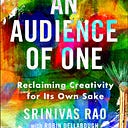Member-only story
The Complete Guide to Building a Personal Knowledge Management System
How to build a Zettelkasten with Mem
Most of us learned how to take notes by highlighting textbooks, memorizing the information, and regurgitating to the pass tests. Many people get through high school with good grades using this approach. But if you’re serious about How to be a Straight-A Student in college and thrive as a knowledge worker, it is not very effective.
Learning to take smart notes leads to an exponential increase in your capacity to remember what you learn, draw original insights, and produce new knowledge.
There are three underlying principles at the heart of a personal knowledge management system that enables you to maximize your output and create new knowledge.
- Externalization: As long as your knowledge lives inside your head, the value of it is limited.
- Contextual tags: By tagging your knowledge so you can retrieve it with minimal friction, you avoid context shifts that decrease your productivity and attention span
- Smart Notes and Networked Thought: Capturing notes on the information you consume and rewriting it in your own words makes your notes far more valuable for use in every intellectual endeavor. You end up with thousands of notes
